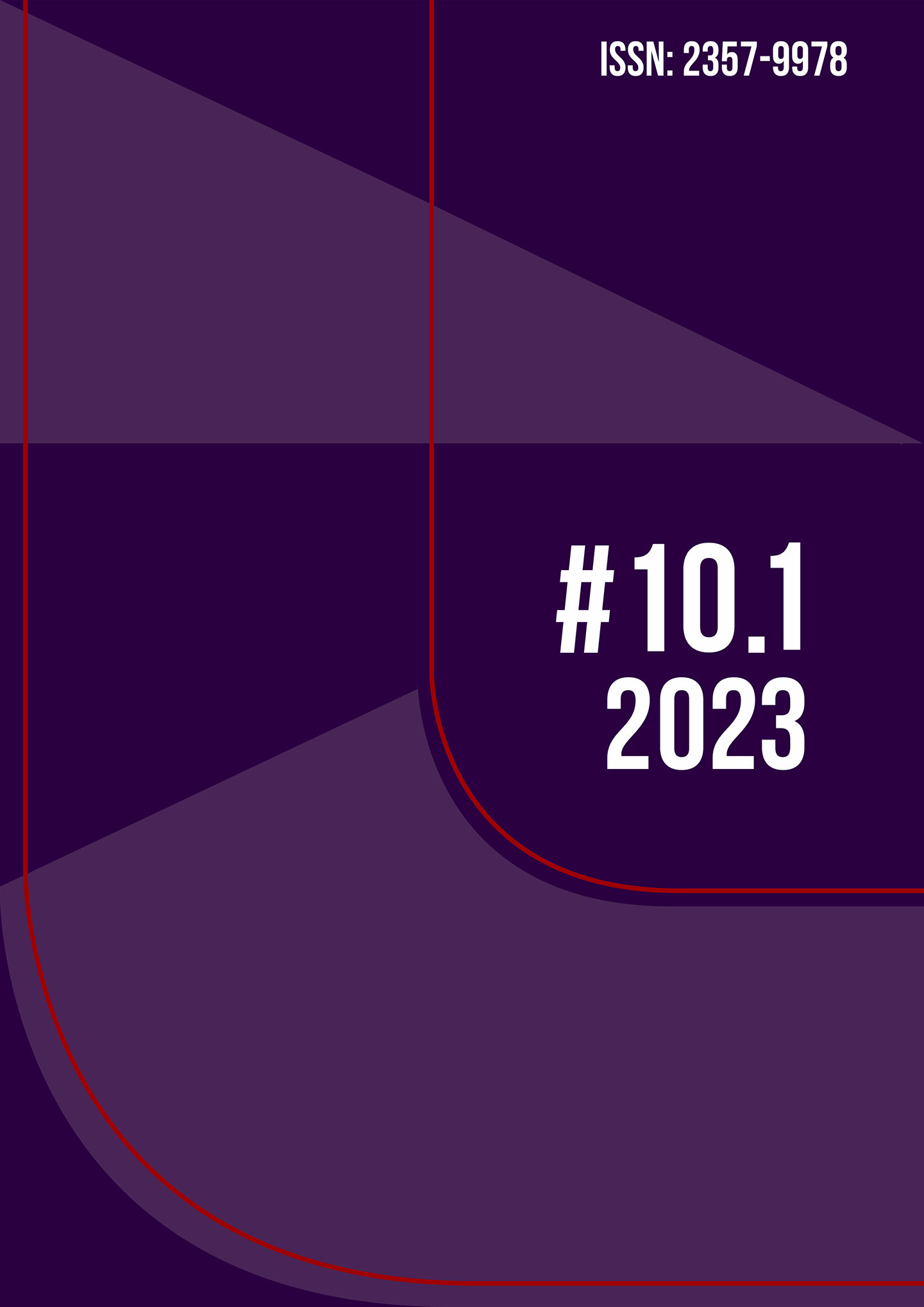Beethoven and the Rhetorical Tradition of the Eighteenth-Century
DOI:
https://doi.org/10.36025/arj.v10i1.31819Keywords:
Beethoven, Early Music, Musical Rhetoric, Romanticism, GeniusAbstract
The permanence of structural elements of rhetorical discourse in Beethoven's symphonic work, often undervalued by listeners, interpreters and analysts, is the focus of this article's analysis. Thus, we aim to contextualize aspects of the origins of Beethoven's work from the rhetorically ruled musical language inherited from the masters of the 18th century. It is not uncommon to find the composer classified as a paradigm of the romantic genius or, at least, as the great precursor of the romantic musical language that emerged at the beginning of the 19th century. Nevertheless, despite the innovations brought by Beethoven in various aspects of musical language, we argue that his work can – and perhaps should – be understood as departing from the rhetorical tradition of the 18th century.
Downloads
References
AMBROS, A. W. Culturhistorische Bilder aus dem Musikleben der Gegenwart. Leipzig: Heinrich Matthes, 1860.
BONDS, M. E. The Beethoven Syndrome: Hearing Music as Autobiography. Oxford: Oxford University Press, 2020.
DUARTE, P. Estio do Tempo: romantismo e estética moderna. Rio de Janeiro: Zahar, 2011.
GOETHE, J. W. Os sofrimentos do jovem Werther. Trad. L. C. Lack. São Paulo: Nova Alexandria, 1999.
HOFFMANN, E. T. A. O Melófobo e a Quinta Sinfonia de Beethoven. Trad. M. Suzuki; M. Videira. São Paulo: Editora Clandestina, 2016. Disponível em: https://www.editoraclandestina.org/_files/ugd/af0615_d45d4f72b2984448a824b0d635c86810.pdf. Acesso em: 20 mar. 2022.
KANT, I. Crítica da Faculdade do Juízo. Trad. A. Marques; V. Rohden. Lisboa: Imprensa Nacional, 1998.
LAWSON, C.; STOWELL, R. The Historical Performance of Music: An Introduction. Cambridge: Cambridge University Press, 1999.
LUCAS, M. Alguns aspectos da execução da música para sopros do classicismo alemão e vienense. Debates: Cadernos do Programa de Pós-Graduação em Música UNIRIO, Rio de Janeiro, v. 10, p. 23-40, 2007.
LUCAS, M. Humor e agudeza em Joseph Haydn: Quartetos de Cordas op. 33. São Paulo: Annablume/Fapesp, 2008.
MONTEIRO, E.; LUCAS, M. “O espírito de Mozart pelas mãos de Haydn”: 250 anos de Ludwig van Beethoven. Estudos Avançados, São Paulo, v. 34, n. 100, p. 341-368, 2020. Disponível em: https://www.revistas.usp.br/eav/article/view/178798. Acesso em: 20 mar. 2022.
NEVES, M. V. S. H. O caminho para a emulação: Francesco Geminiani e a consolidação do estilo inglês no século XVIII (1714-1762). Tese (Doutorado em Musicologia) - Escola de Comunicações e Artes, Universidade de São Paulo, São Paulo, 2021. Disponível em: https://doi.org/10.11606/T.27.2021.tde-13072022-153129. Acesso em: 20 mar. 2022.
OLIVA NETO, J. A. Introdução: Bocage e a tradução poética no século XVIII. In: OVIDIO. Metamorfoses. Trad. Bocage. São Paulo: Hedra, 2007. p. 9-33.
OLIVEIRA, W. C. Beethoven, proprietário de um cérebro. São Paulo: Perspectiva, 1979.
ROSEN, C. A Geração Romântica. Trad. E. Seincman. São Paulo: EDUSP, 2000.
ROSEN, C. The Classical Style: Haydn, Mozart, Beethoven. New York: W. W. Norton & Company, 1997.
ROSENBLUM, S. P. Performance Practices in Classic Piano Music: Their Principles and Applications. Bloomington: Indiana University Press, 1988.
SAINT-LAMBERT, J. F. Gênio. In: DIDEROT, D.; D’ALEMBERT, J. L. R. Enciclopédia, ou Dicionário razoado das ciências, das artes e dos ofícios. Vol. 5 (Sociedade e Artes). Trad. M. G. Souza et al. São Paulo: Editora Unesp, 2015. p. 323-329.
SUZUKI, M. Uma abertura para a sinfonia do mundo espiritual – Música, arte e filosofia na literatura de E. T. A. Hoffmann. In: HOFFMANN, E. T. A. O Melófobo e a Quinta Sinfonia de Beethoven. Trad. M. Suzuki; M. Videira. São Paulo: Editora Clandestina, 2016. p. 45-79.
VIDEIRA, M. Crítica musical enquanto teoria estética em E. T. A. Hoffmann. Artefilosofia, Ouro Preto, v. 5, n. 8, p. 91-105, 2010. Disponível em: https://periodicos.ufop.br/raf/article/view/653. Acesso em: 20 mar. 2022.
VIDEIRA JUNIOR, M. R. A linguagem do inefável: música e autonomia estética no romantismo alemão. Tese (Doutorado em Filosofia) - Faculdade de Filosofia, Letras e Ciências Humanas, Universidade de São Paulo, São Paulo, 2009. Disponível em: https://doi.org/10.11606/T.8.2009.tde-05022010-133457. Acesso em: 20 mar. 2022.
WAGNER, R. Beethoven. Trad. A. H. Cavalcanti. Rio de Janeiro: Zahar, 2010.
Downloads
Published
Versions
- 17-05-2023 (2)
- 17-05-2023 (1)
How to Cite
Issue
Section
License
Copyright (c) 2023 William Coelho, Mário Videira (Autor)

This work is licensed under a Creative Commons Attribution-NonCommercial-ShareAlike 4.0 International License.

This work is licensed under a Attribution-NonCommercial-ShareAlike 4.0 International (CC BY-NC-SA 4.0) License.
Authors retain copyright, while licensing their work under a Attribution-NonCommercial-ShareAlike 4.0 International (CC BY-NC-SA 4.0) License.


 English
English Português (Brasil)
Português (Brasil)
